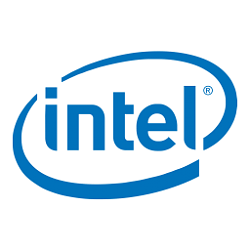| Intel ID: |
INTEL-SA-00161 |
|---|
| Product family: |
Multiple |
| Impact of vulnerability: |
Information Disclosure |
| Severity rating: |
See Security Advisory text |
| Original release: |
08/14/2018 |
| Last revised: |
08/14/2018 |
Security researchers have identified a speculative execution side-channel method called L1 Terminal Fault (L1TF). This method impacts select microprocessor products supporting Intel® Software Guard Extensions (Intel® SGX). Further investigation by Intel has identified two related applications of L1TF with the potential to impact additional microprocessors, operating systems, system management mode, and virtualization software. If used for malicious purposes, this class of vulnerability has the potential to improperly infer data values from multiple types of computing devices.
Intel is committed to product and customer security and to coordinated disclosure. We worked closely with other technology companies, operating system, and hypervisor software vendors, developing an industry-wide approach to mitigate these issues promptly and constructively.
For facts about these new exploits, technical resources, and steps you can take to help protect systems and information please visit:
Side Channel Methods – Analysis, News and Updates.
Description:
CVE-2018-3615 - L1 Terminal Fault: SGX
- Systems with microprocessors utilizing speculative execution and Intel® software guard extensions (Intel® SGX) may allow unauthorized disclosure of information residing in the L1 data cache from an enclave to an attacker with local user access via a side-channel analysis.
- 7.9 High CVSS:3.0/AV:L/AC:L/PR:N/UI:N/S:C/C:H/I:L/A:N
CVE-2018-3620 - L1 Terminal Fault: OS/SMM
- Systems with microprocessors utilizing speculative execution and address translations may allow unauthorized disclosure of information residing in the L1 data cache to an attacker with local user access via a terminal page fault and a side-channel analysis.
- 7.1 High CVSS:3.0/AV:L/AC:L/PR:N/UI:N/S:C/C:H/I:N/A:N
CVE-2018-3646 - L1 Terminal Fault: VMM
- Systems with microprocessors utilizing speculative execution and address translations may allow unauthorized disclosure of information residing in the L1 data cache to an attacker with local user access with guest OS privilege via a terminal page fault and a side-channel analysis.
- 7.1 High CVSS:3.0/AV:L/AC:L/PR:N/UI:N/S:C/C:H/I:N/A:N
Affected products:
The following Intel-based platforms are potentially impacted by these issues. Intel may modify this list at a later time.
Intel® Core™ i3 processor (45nm and 32nm)
Intel® Core™ i5 processor (45nm and 32nm)
Intel® Core™ i7 processor (45nm and 32nm)
Intel® Core™ M processor family (45nm and 32nm)
2nd generation Intel® Core™ processors
3rd generation Intel® Core™ processors
4th generation Intel® Core™ processors
5th generation Intel® Core™ processors
6th generation Intel® Core™ processors **
7th generation Intel® Core™ processors **
8th generation Intel® Core™ processors **
Intel® Core™ X-series Processor Family for Intel® X99 platforms
Intel® Core™ X-series Processor Family for Intel® X299 platforms
Intel® Xeon® processor 3400 series
Intel® Xeon® processor 3600 series
Intel® Xeon® processor 5500 series
Intel® Xeon® processor 5600 series
Intel® Xeon® processor 6500 series
Intel® Xeon® processor 7500 series
Intel® Xeon® Processor E3 Family
Intel® Xeon® Processor E3 v2 Family
Intel® Xeon® Processor E3 v3 Family
Intel® Xeon® Processor E3 v4 Family
Intel® Xeon® Processor E3 v5 Family **
Intel® Xeon® Processor E3 v6 Family **
Intel® Xeon® Processor E5 Family
Intel® Xeon® Processor E5 v2 Family
Intel® Xeon® Processor E5 v3 Family
Intel® Xeon® Processor E5 v4 Family
Intel® Xeon® Processor E7 Family
Intel® Xeon® Processor E7 v2 Family
Intel® Xeon® Processor E7 v3 Family
Intel® Xeon® Processor E7 v4 Family
Intel® Xeon® Processor Scalable Family
Intel® Xeon® Processor D (1500, 2100)
** indicates Intel microprocessors affected by CVE-2018-3615 - L1 Terminal Fault: SGX
Please check with your system manufacturer for more information regarding updates for your system.
Recommendations:
Intel has worked with operating system vendors, equipment manufacturers, and other ecosystem partners to develop platform firmware and software updates that can help protect systems from these methods.
This includes the release of updated Intel microprocessor microcode to our customers and partners. This microcode was previously released as part of
INTEL-SA-00115.
Status of available microcode can be found
here.
End users and systems administrators should check with their system manufacturers and system software vendors and apply any available updates as soon as practical.
Acknowledgements:
Intel would like to thank Raoul Strackx1,Jo Van Bulck1, Marina Minkin2, Ofir Weisse3, Daniel Genkin3, Baris Kasikci3, Frank Piessens1, Mark Silberstein2, Thomas F. Wenisch3, and Yuval Yarom4 for reporting this issue and working with us on coordinated disclosure of CVE-2018-3615 (
www.foreshadowattack.com)
1
imec-DistriNet, KU Leuven, 2Technion, 3University of Michigan, 4University of Adelaide and Data61
Revision History
| Revision |
Date |
Description |
|---|
| 1.0 |
08/14/2018 |
Initial Release |
CVE-2018-3615, CVE-2018-3620, CVE-2018-3646


